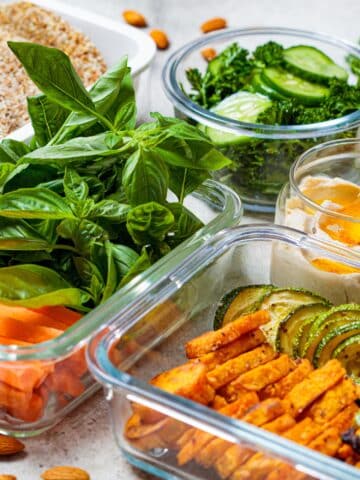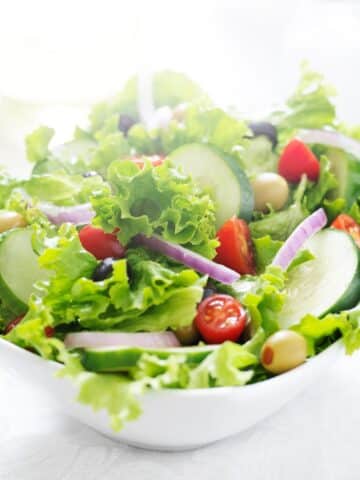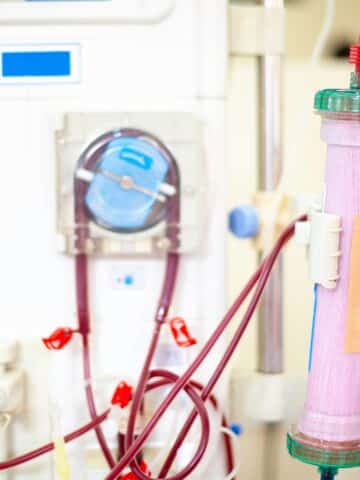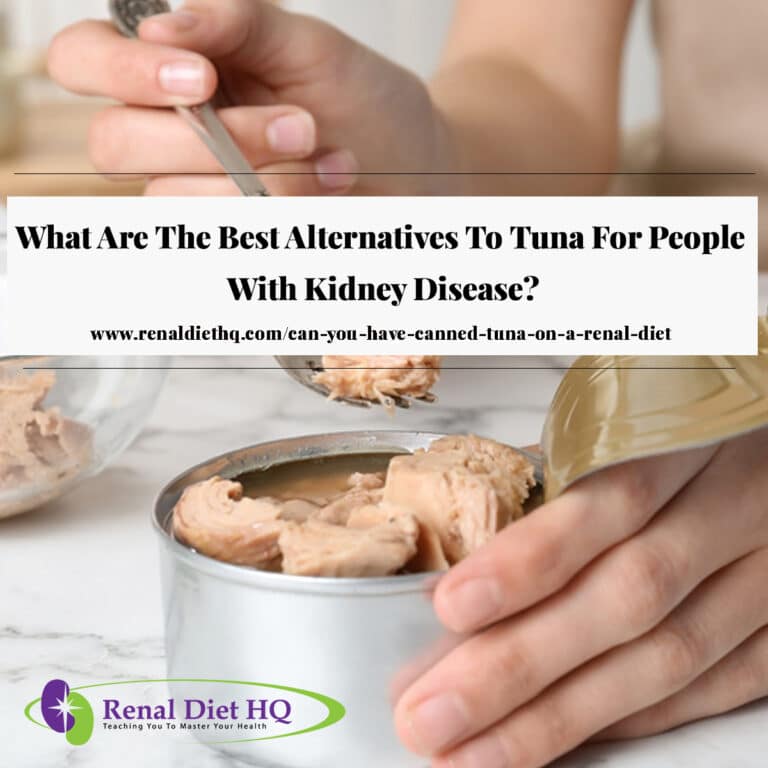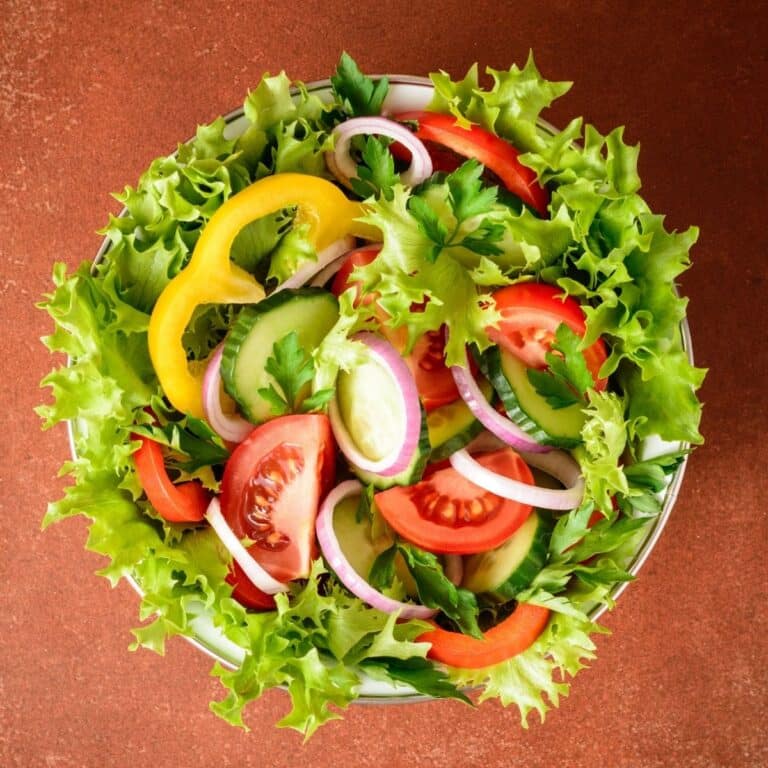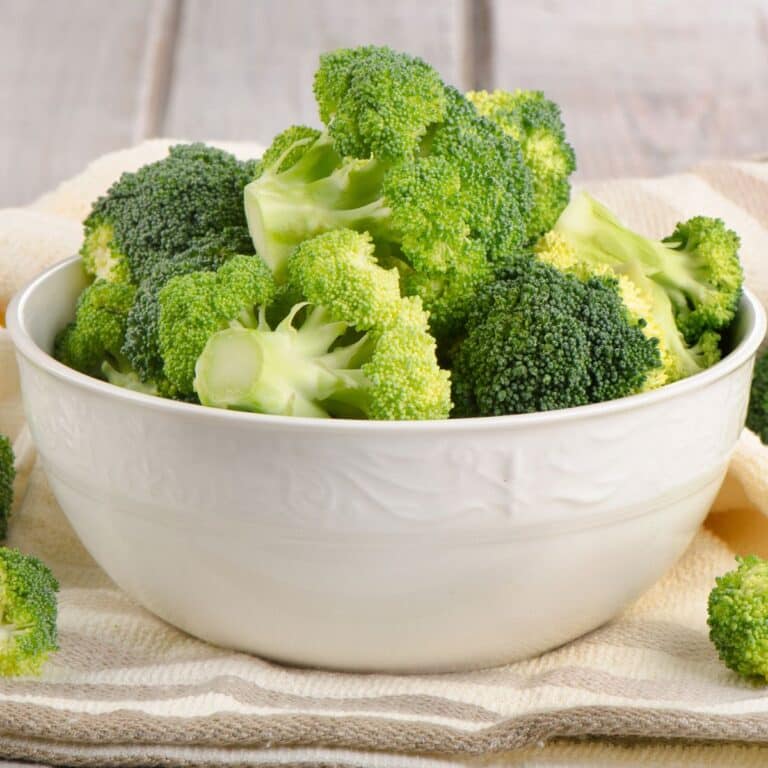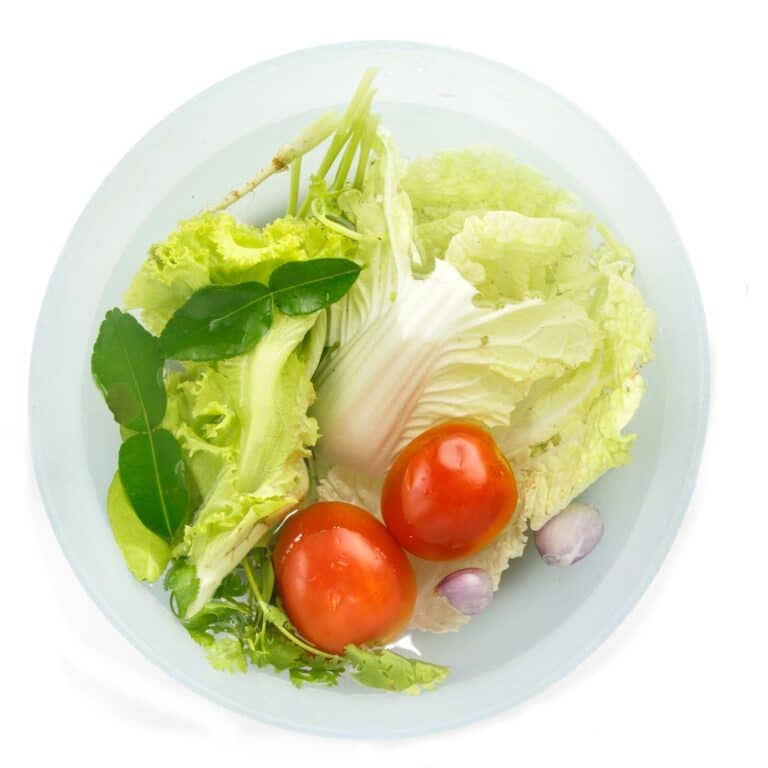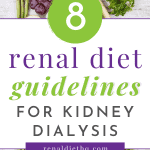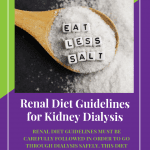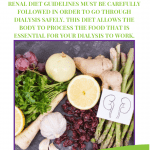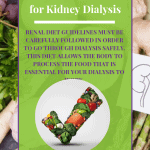Renal Dialysis Diet
Navigating a renal dialysis diet is essential for managing kidney health. This specialized dietary approach is crucial for kidney patients undergoing dialysis, aiming to optimize nutrition while managing fluid, electrolyte, and mineral levels. From controlling sodium and potassium to moderating protein and fluid intake, adhering to a renal dialysis diet demands a thoughtful balance.
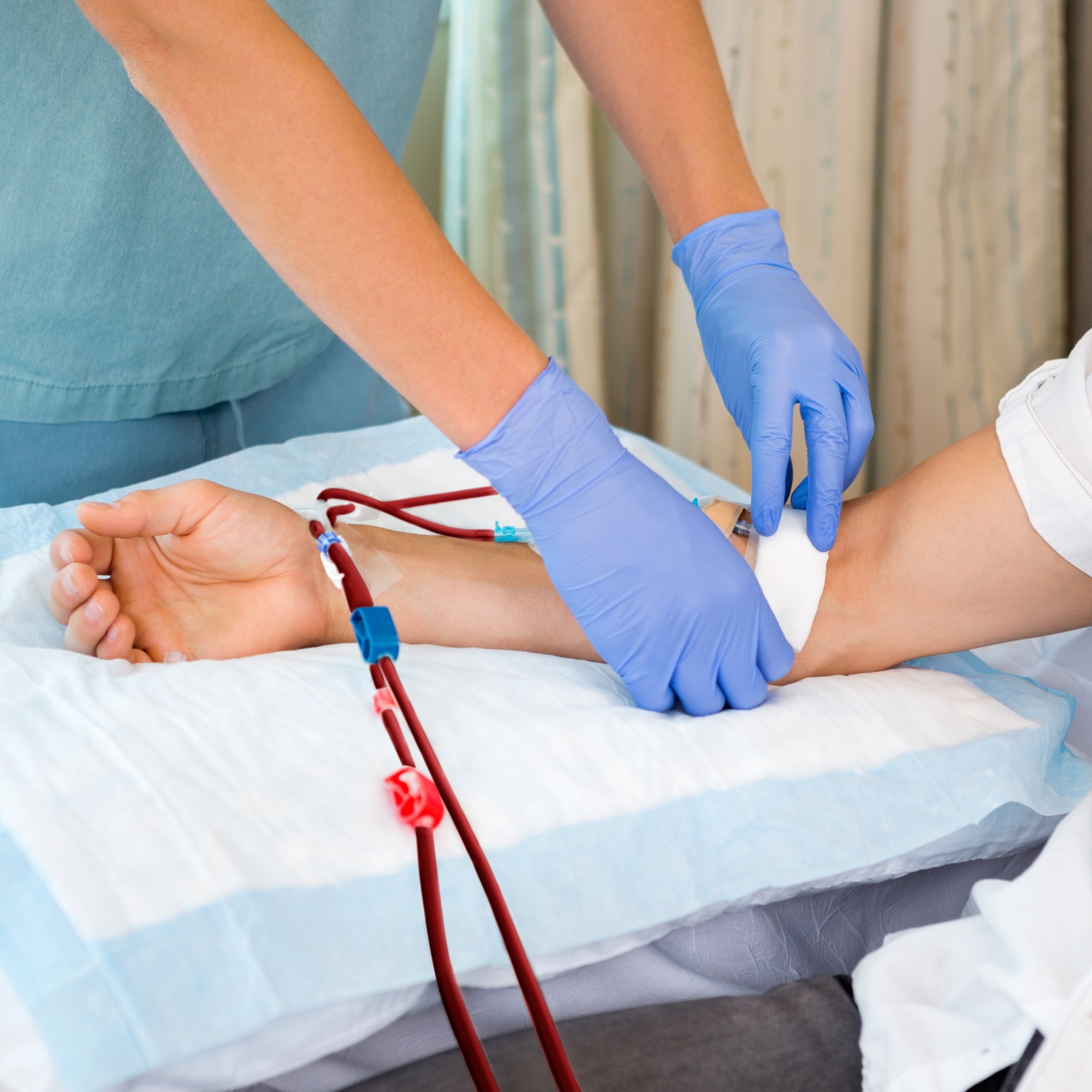
Understanding the nuances of food choices, meal timing, and cooking methods is vital. This article dives into the intricacies of a renal dialysis diet, providing insights and practical strategies to support individuals in sustaining optimal health while undergoing dialysis treatment.
Jump to:
Key Takeaways
- Focus on limiting sodium, potassium, and phosphorus while emphasizing heart-healthy, low-fat foods and controlled protein intake.
- Limit salt intake to control blood pressure and monitor fluid consumption to avoid complications.
- Manage potassium levels by reducing high-potassium foods and monitoring intake through blood tests.
- Balance protein intake for immune support, wound healing, and metabolic function without overburdening kidneys.
- Opt for low-phosphorus grains and bread while being mindful of portion sizes to manage phosphorus intake effectively.
Understanding Renal Diet Basics
Navigating your renal diet is critical for managing your health during dialysis. You'll need to balance essential nutrients while keeping a close eye on electrolytes like sodium and potassium.
For More Recipes and Ideas --->> Get Your Free Meals and Recipes That Are Perfect for Pre-Dialysis Diets, Pre-Dialysis with Diabetes, or Dialysis Diets.
Essential Nutrition Management
The renal diet is designed for individuals with kidney disease or compromised kidney function. Its primary goal is to reduce the workload on the kidneys and maintain essential nutrient balance. This diet focuses on limiting foods high in sodium, potassium, and phosphorus, as these minerals can accumulate in the body when kidney function is impaired.
Sodium restriction helps manage blood pressure and fluid retention, reducing the risk of swelling and heart strain. Potassium and phosphorus control is vital to prevent their levels from becoming dangerously high, which can affect heart rhythm and bone health.
Protein intake is also carefully managed. While protein is essential for growth and repair, excessive amounts can increase kidney strain. The renal diet usually includes high-quality protein in controlled amounts. Fluid intake might be restricted in advanced cases to prevent fluid overload.
Additionally, the renal diet encourages the consumption of heart-healthy foods with low saturated fats and cholesterol, supporting overall cardiovascular health. It's a tailored approach, often adjusted based on individual kidney function and treatment stage.
Balancing Nutrients Correctly
Balancing nutrients correctly is crucial in managing a renal dialysis diet, playing a vital role in maintaining overall health and optimizing dialysis outcomes. Kidney disease impairs the body's ability to filter and balance essential nutrients and fluids. Therefore, a carefully planned diet helps manage electrolytes (like sodium, potassium, and phosphorus), fluids, and waste products, which kidneys can no longer regulate efficiently.
Sodium control is essential to prevent high blood pressure and fluid retention, reducing the risk of heart and vascular complications. Limiting potassium is critical to avoid dangerous heart rhythm disturbances. Phosphorus management is necessary to prevent bone disease and maintain healthy calcium levels. Protein needs are unique in people with kidney failure; adequate intake is essential for maintaining muscle mass and health, but overconsumption can lead to waste buildup.
Fluid management is also a key aspect, as excess fluids can cause heart and lung issues. Balancing these nutrients helps minimize complications, improve quality of life, and enhance the effectiveness of dialysis treatments.
Sodium and Fluid Management
Managing your sodium and fluid intake is crucial when you're on dialysis. You'll need to limit salt to control blood pressure and reduce thirst, which in turn helps manage your fluid consumption.
Monitoring these closely supports your treatment and minimizes complications related to fluid retention and hypertension.
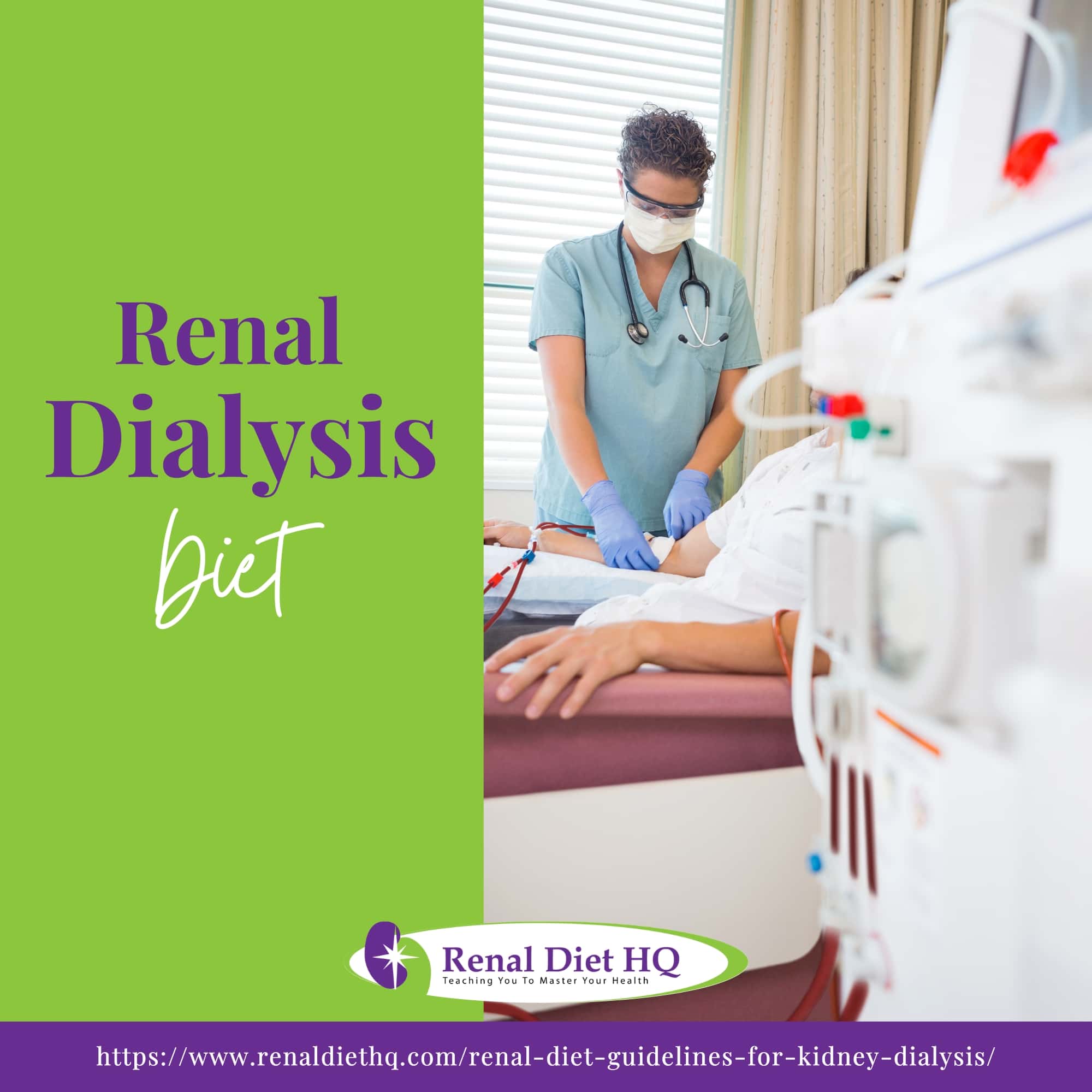
Limit Salt Intake
Limiting salt intake in a dialysis diet is vital for managing fluid balance and blood pressure, key concerns for individuals with kidney failure. Excessive salt can lead to fluid retention, causing swelling, hypertension, and added strain on the heart, potentially exacerbating cardiovascular risks which are already high in dialysis patients. To effectively reduce salt intake, it's important to:
- Read Food Labels: Choose low-sodium products and be mindful of sodium content in processed foods.
- Cook Fresh: Prepare meals at home using fresh, unprocessed ingredients.
- Herbs and Spices: Use these instead of salt for flavoring meals.
- Avoid High-Sodium Foods: Cut down on canned soups, processed meats, and fast foods.
- Portion Control: Eat smaller portions to naturally reduce sodium intake.
- Be Cautious When Eating Out: Request meals with no added salt and avoid salty sauces.
By implementing these strategies, people with kidney failure can better manage their salt intake, contributing to improved fluid balance and overall health management.
Monitor Fluid Consumption
In fluid management for individuals undergoing dialysis, controlling fluid intake is critical. Kidneys failing to effectively filter fluids can lead to fluid buildup, causing swelling, increased blood pressure, and strain on the heart. For people with kidney disease, adhering to prescribed fluid limits is essential to prevent complications like congestive heart failure and pulmonary edema.
Balancing fluid consumption becomes paramount due to restricted urine output or no urine output in some cases. It involves not just monitoring beverage intake but also considering fluids from foods like fruits, soups, and ice cream.
Regular monitoring of weight, blood pressure, and fluid removal during dialysis sessions guides the prescribed fluid intake. Adherence to recommended fluid limits helps manage cardiovascular health and supports the effectiveness of dialysis treatments, ensuring optimal health and well-being for those undergoing renal replacement therapy.
Potassium Intake Considerations
You need to be mindful of your potassium intake while on dialysis, as high levels can pose serious health risks.
It's crucial to recognize which foods are high in potassium and limit them in your diet to maintain safe levels.
Managing Potassium Levels
Managing potassium levels in a renal dialysis diet is crucial due to the kidneys' reduced ability to excrete excess potassium. High potassium levels can disrupt heart rhythm, leading to potentially life-threatening arrhythmias.
Dialysis patients are often advised to limit high-potassium foods like bananas, oranges, potatoes, and tomatoes, as these can contribute to elevated potassium levels. Monitoring and managing potassium intake prevent hyperkalemia, reducing the risk of heart complications. Balancing potassium intake with prescribed levels helps maintain heart health, supporting overall well-being in individuals undergoing dialysis.
Regular monitoring of potassium levels through blood tests guides dietary adjustments, ensuring patients stay within safe potassium ranges to mitigate the risk of cardiac issues.
High-Potassium Foods Limitation
Limiting high-potassium foods in a renal dialysis diet is crucial for maintaining heart health and preventing hyperkalemia. This involves identifying and avoiding foods rich in potassium, such as bananas, oranges, potatoes, and tomatoes.
Patients should focus on low-potassium alternatives like apples, berries, carrots, and green beans. Education about food labels is essential, as some processed foods may contain hidden sources of potassium.
Portion control plays a significant role; smaller servings can help manage potassium intake. Cooking methods also impact potassium levels; for example, leaching or boiling vegetables can reduce their potassium content.
It's advisable to consult with a dietitian to create a personalized meal plan that considers individual health needs and preferences. Regular blood tests are essential to monitor potassium levels, allowing for timely dietary adjustments. Maintaining a balanced diet while adhering to these guidelines helps ensure that patients on dialysis can manage their potassium levels effectively and safely.
Importance of Protein
Your body's ability to maintain muscle strength is crucial during dialysis, and that's where protein plays a vital role.
It's not just about keeping muscles robust; protein is also key in supporting the healing of wounds.
Ensuring you get enough protein can significantly bolster your immune system, helping you stay resilient.
Muscle Maintenance Necessity
Protein intake is crucial for muscle maintenance in CKD patients. Skeletal muscles act as reservoirs for amino acids, vital for various bodily functions. In kidney disease, protein breakdown increases due to a reduced ability to excrete waste products. While excessive protein can strain kidneys, inadequate protein intake leads to muscle wasting and compromised immune function. Hence, a careful balance is crucial.
Proteins are necessary for tissue repair, immune response, and enzyme production. In CKD, the emphasis is on high-quality protein sources with controlled portions to maintain muscle mass while minimizing kidney workload.
Dietitians often tailor protein recommendations based on the disease stage and individual needs, aiming for optimal health without overloading the kidneys. Ensuring adequate, but not excessive, protein intake is vital in preserving muscle function and overall well-being in CKD patients.
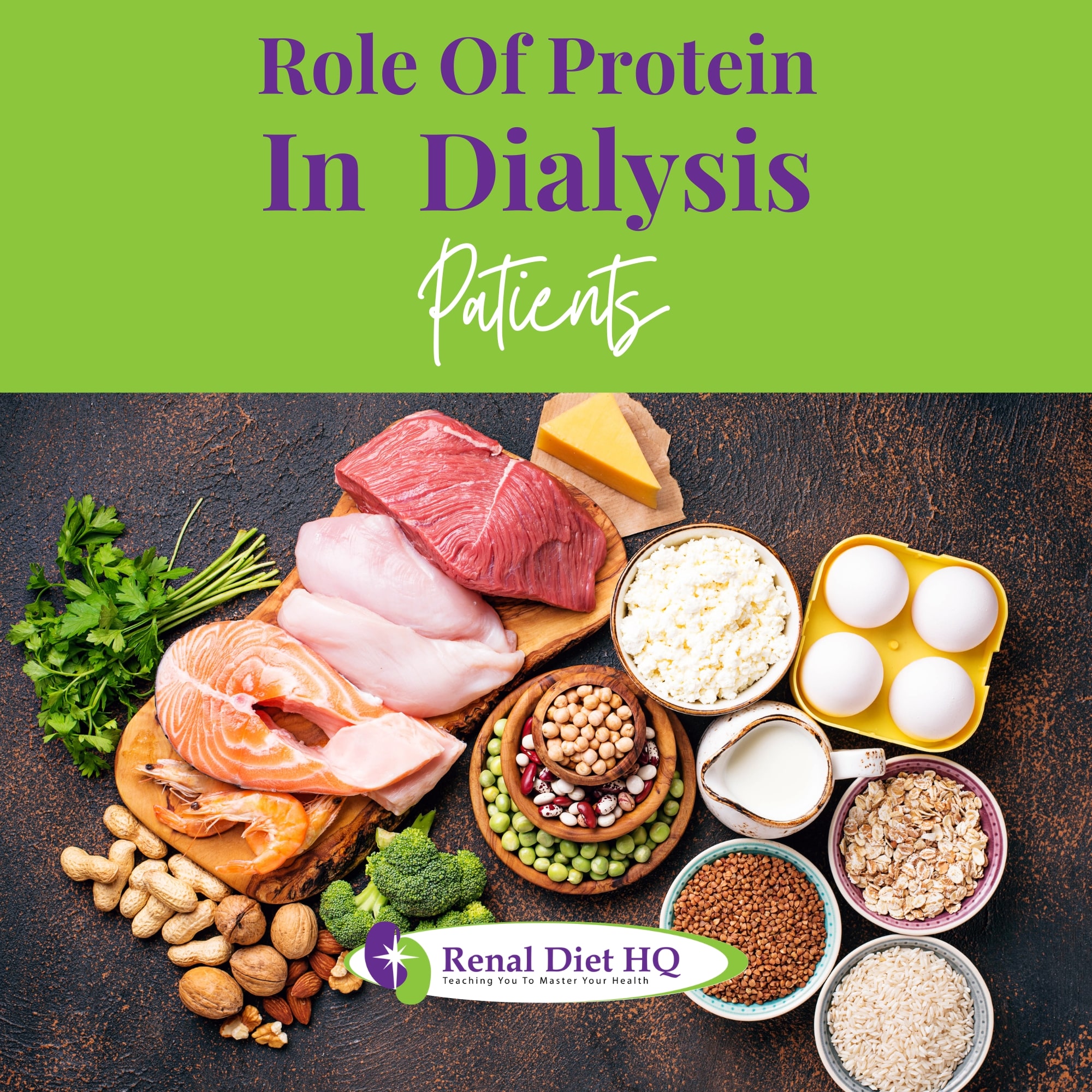
Role of Protein In Dialysis Patients
Protein plays a vital role in the health of dialysis patients, extending well beyond simply maintaining muscle mass. It is crucial for wound healing, significantly aiding the body's ability to repair itself and recover from any injuries or surgeries.
Additionally, protein supports robust immune function, empowering the body to effectively fight infections, a critical aspect for patients with compromised health.
Moreover, proteins are fundamental in the production of enzymes. These enzymes catalyze a myriad of biochemical reactions essential for proper metabolism, ensuring the body's metabolic processes run smoothly. Proteins are also key in synthesizing hormones and neurotransmitters, which have far-reaching effects on mood, mental health, and overall cognitive function.
For those undergoing dialysis, managing protein intake is a delicate balance. It's imperative to prevent the buildup of waste products while providing sufficient levels for these vital bodily functions.
Ensuring an appropriate balance of protein intake helps sustain overall health and well-being, supports immune function, aids metabolic processes, and contributes to a better quality of life for individuals undergoing renal replacement therapy.
Grains and Bread Selection
When choosing grains and bread for your renal dialysis diet, it's essential to opt for low-phosphorus options to manage your health effectively.
Be mindful of portion sizes; for instance, a single slice of bread or half a cup of cooked pasta constitutes one serving.
Choose Low-Phosphorus Options
For individuals on a renal dialysis diet, selecting low-phosphorus grains and bread is crucial to manage phosphorus levels, essential for maintaining bone health and preventing cardiovascular issues.
White bread, white rice, and refined pasta are generally lower in phosphorus compared to their whole grain counterparts. However, moderation is key, as even these can contribute to phosphorus intake.
Additionally, bulgur, pearled barley, and couscous are relatively low in phosphorus and can be incorporated into meals. It's important to note that while these grains are lower in phosphorus, portion control remains vital.
When choosing bread, opting for white or sourdough bread is advisable, as they are typically lower in phosphorus than whole wheat or multigrain varieties. Remember, some bread and grain products may contain added phosphorus, especially in preservatives and enhancers.
Thus, it's essential to read labels carefully, looking for ingredients that might indicate phosphorus additives, often listed with "phos" in the ingredient list.
These lower phosphorus grain options provide versatility in a renal diet, allowing patients to enjoy a variety of foods while managing their phosphorus intake effectively.
Portion Size Awareness
Portion size awareness is pivotal in managing phosphorus intake, particularly concerning grains and bread in a renal dialysis diet.
Despite choosing low-phosphorus options like white bread, white rice, or refined pasta, overconsumption can still lead to excessive phosphorus intake, which is detrimental for kidney health. Therefore, it's essential to adhere to recommended portion sizes.
A general guideline is to limit grain servings to about ½ cup cooked rice, pasta, or cereal and one slice of bread per meal. This moderation helps keep phosphorus levels in check while still allowing for dietary variety. Understanding that smaller portions can be satisfying is key, and incorporating other low-phosphorus foods can help create a balanced meal.
It's also crucial to be mindful of "hidden" phosphorus in packaged or processed grains and bread. Ingredients with "PHOS" prefixes indicate added phosphorus, often more absorbable and potentially harmful in excess. By focusing on portion control and ingredient awareness, individuals can effectively manage their phosphorus levels while enjoying a range of grain-based foods.
Dairy Product Restrictions
When managing your renal dialysis diet, it's important to limit your dairy intake due to its high phosphorus content.
You'll need to be mindful of choosing low-phosphorus alternatives, such as certain non-dairy creams and milk substitutes.
Always remember to consult with your dietitian to find the best dairy or non-dairy options that fit within your dietary restrictions.
Limit Phosphorus Intake
Limiting dairy products is a significant step in controlling phosphorus intake for individuals following a renal diet. Dairy items like milk, cheese, and yogurt are naturally high in phosphorus, a mineral that needs careful management in kidney disease.
When the kidneys are compromised, they struggle to filter excess phosphorus, potentially leading to dangerous imbalances in the body. High phosphorus levels can cause bone and cardiovascular issues, among other complications.
By reducing dairy consumption, individuals can significantly lower their phosphorus intake. This is crucial since the body absorbs phosphorus from dairy products very efficiently, heightening the risk of accumulation.
It’s important for those with kidney disease to be aware of the phosphorus content in various dairy products and to adjust their intake accordingly. This means choosing smaller portions or eating these foods less frequently, effectively reducing overall phosphorus load and aiding in the management of kidney health.
Choose Low-Phosphorus Alternatives
In managing your renal diet, it's essential to choose low-phosphorus dairy alternatives, as regular dairy products are high in phosphorus and can interfere with your dialysis treatment. Engage in low phosphorus meal prep and look for phosphorus free snacks. Use phosphate binder alternatives when necessary, and focus on reducing phosphorus absorption.
Here's a helpful table to guide you:
| Dairy Product | Low-Phosphorus Alternative | Notes |
| Milk | Rice or almond milk | Check for added phosphates |
| Cheese | Ricotta or cream cheese | Limit portions |
| Yogurt | Non-dairy yogurt | Opt for unsweetened types |
| Ice cream | Sorbet or sherbet | Watch for additives |
| Pudding | Homemade with rice milk | Use low phosphorus recipes |
Managing High Cholesterol
If you're managing high cholesterol on a renal dialysis diet, it's crucial to make smart choices regarding dietary fats. Your dietitian will help you identify healthy fats and guide you on how to integrate them into your meals.
Dietary Fat Selection
Selecting healthy fats is crucial in a dialysis diet, as they play a vital role in maintaining overall health without overburdening the kidneys. Patients should focus on unsaturated fats, which are found in plant-based oils (like olive, canola, and sunflower oil), nuts, seeds, and fatty fish such as salmon, trout, and mackerel. These fats are beneficial for heart health, a key consideration since kidney disease patients are at higher risk for heart disease.
Trans fats and saturated fats, commonly found in processed foods, fast foods, and fatty meats, should be limited. These fats can increase the risk of heart disease by raising bad cholesterol levels. Avocados and olives are also excellent sources of healthy fats and can be incorporated into meals for added flavor and nutrition.
Incorporating the right types of fats in moderate amounts helps ensure a balanced diet while managing the specific nutritional needs of those on dialysis.
Physical Activity Importance
Physical activity plays a pivotal role in managing high cholesterol levels for individuals on a dialysis diet. Regular exercise helps boost good cholesterol (HDL) levels while lowering bad cholesterol (LDL) and triglycerides.
This balance is crucial in reducing the risk of cardiovascular disease, a prevalent concern for those undergoing dialysis due to kidney-related complications. Exercise enhances blood circulation, promoting better lipid metabolism and reducing plaque buildup in arteries.
Moreover, physical activity aids in weight management, as excess weight can contribute to high cholesterol levels. Even light exercises like walking or gentle aerobics can make a significant difference. However, exercise plans should be personalized, considering an individual's overall health and dialysis treatment regimen.
Consulting healthcare professionals for guidance on suitable exercises tailored to one's condition is essential for effectively managing cholesterol levels in a dialysis diet.
Renal Diet and Diabetes
If you're managing both kidney disease and diabetes, it's crucial to balance your blood sugar while following your renal diet.
You'll need to carefully plan your meals to include a variety of food groups, ensuring you get the nutrients you need without overloading on protein or sodium.
Balancing Blood Sugar
Managing blood sugar levels in a renal dialysis diet involves careful attention to carbohydrate intake, as carbohydrates impact blood sugar. Choosing complex carbohydrates like whole grains, vegetables, and legumes over refined sugars and processed foods helps prevent rapid spikes in blood sugar levels.
Portion control is crucial to regulate carbohydrate intake, ensuring a balance that doesn't strain the kidneys or cause fluctuations in blood glucose.
Additionally, monitoring and controlling sugar intake from beverages and snacks is essential. Opting for sugar-free or naturally sweetened alternatives can aid in managing blood sugar levels.
Regular monitoring of blood sugar, adherence to prescribed medications, and coordination with healthcare providers to adjust insulin or other medications are crucial steps in maintaining stable blood sugar levels for individuals undergoing dialysis.
A balanced diet, coupled with appropriate medical guidance, supports effective blood sugar management in a renal dialysis diet.
Diabetic Meal Planning
Incorporating diabetic considerations into a renal diet for dialysis patients requires a careful balance of nutrients while managing blood sugar and kidney health. Key aspects include controlling carbohydrate intake, focusing on high-fiber, low-glycemic index foods like whole grains, legumes, and non-starchy vegetables. These choices help in maintaining stable blood glucose levels and are also kidney-friendly.
Protein intake needs to be monitored, ensuring it's adequate but not excessive, as this can burden the kidneys. Lean proteins are preferable. Sodium, phosphorus, and potassium levels must be managed, as imbalances can exacerbate kidney issues and affect cardiovascular health, critical for diabetic patients. Limiting processed foods helps in controlling these minerals and sugars.
Fluid intake requires attention, as both diabetes and dialysis impact fluid balance. Consulting with a dietitian or healthcare provider is vital for personalized advice, ensuring the diet meets the individual's nutritional needs while managing both diabetes and kidney health effectively. Regular monitoring of blood glucose and kidney function helps in adjusting the diet as necessary.
Frequently Asked Questions
For individuals on a renal dialysis diet, meal planning is affected by the timing of dialysis sessions. Meals before dialysis may require fluid and potassium restrictions to avoid excessive buildup during treatment. Post-dialysis meals might allow for more liberal fluid and nutrient intake to replenish losses. Balancing nutritional needs, controlling fluid, potassium, and phosphorus levels according to the dialysis schedule is crucial in meal planning for optimal health and effective dialysis sessions.
Yes, you can enjoy eating out while following a strict renal dialysis diet. Look for menu items low in sodium, potassium, and phosphorus. Choose grilled or baked dishes instead of fried. Request no added salt and sauces on the side. Opt for smaller portions to manage fluid and nutrient intake. Steamed vegetables, lean meats, and salads with dressing on the side are good choices. Inform the restaurant of your dietary needs, as many are accommodating to special requests.
Recommended cooking methods for a renal dialysis diet include steaming, baking, grilling, and boiling. Avoid frying or deep-frying, which can add excess fat and sodium. Opt for herbs, spices, or low-sodium seasoning blends instead of salt. Leaching vegetables before cooking can help reduce potassium levels. Cooking at home allows better control over ingredients and methods, ensuring adherence to dietary restrictions essential for kidney health on a renal dialysis diet.
During illness or infection, a renal dialysis diet may need adjustments. Increased fluid loss may require extra fluid intake to prevent dehydration. Medications and reduced appetite can impact nutrient intake. Healthcare providers might alter potassium, phosphorus, and protein restrictions as per the patient's condition. Temporary changes like consuming more easily digestible foods, electrolyte-balanced beverages, and adjusting medications align with the body's needs during illness, ensuring nutritional support while managing kidney health on a renal dialysis diet. Regular monitoring and medical guidance are crucial.
Strategies to manage cravings for restricted foods on a renal dialysis diet involve finding suitable alternatives. For chocolate cravings, opt for small amounts of lower-phosphorus treats like hard candies or a small serving of vanilla pudding. Replace potato chips with low-sodium snacks like air-popped popcorn or unsalted rice cakes. Distracting oneself with activities or focusing on favorite allowed foods can also help curb cravings while adhering to dietary restrictions essential for kidney health.
A Renal Dialysis Diet Helps You Stay On Track
Mastering the renal diet is a crucial part of managing health during dialysis. By delicately balancing nutrients and meticulously monitoring sodium, potassium, and phosphorus levels, this diet aims to ease the strain on compromised kidneys. Careful nutrient management is pivotal, influencing overall health and the effectiveness of dialysis.
Restricting sodium aids in managing blood pressure and fluid retention, while potassium and phosphorus control safeguards against heart rhythm disturbances and bone issues. Protein intake, pivotal for muscle maintenance, must be balanced to prevent further kidney strain. Fluid intake regulation is paramount, vital for cardiac health and managing dialysis efficacy.
Adhering to these dietary guidelines empowers individuals to enhance their well-being and supports the efficiency of renal replacement therapy.


